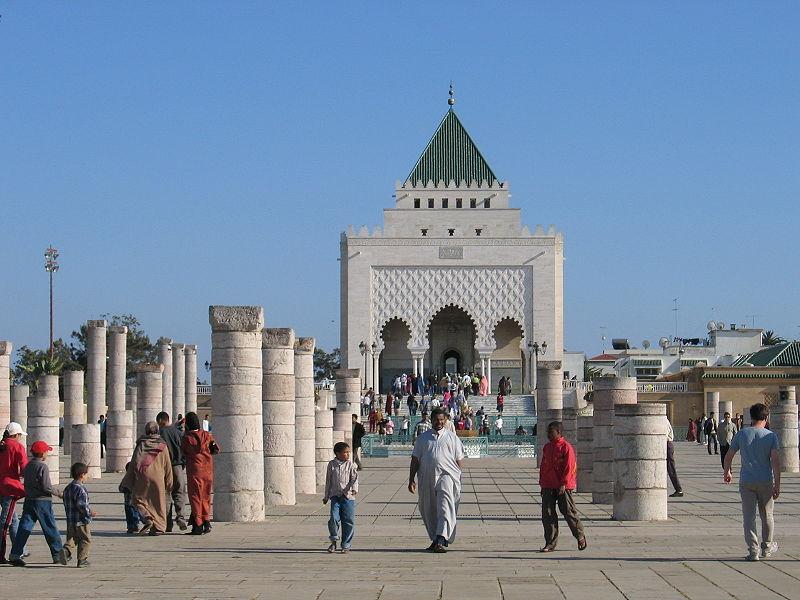Morocco remains calm amidst Arab upheaval
By Gerry Hadden
As conflicts and revolution rock the Arab world from Oman to Libya, one North African country — Morocco – has remained relatively calm. Many say that’s due to the popularity of the king.
Compared to other leaders in the region, Morocco’s “Commander of the Faithful,” King Mohammed VI, has a reputation as a moderate, even a reformer. Nearly everyone you ask in the capital, Rabat, has something good to say about him.
On a palm-tree lined boulevard, a woman named Nawel said even if the waves of revolution reach Morocco, the king should stay. “People keep talking about wanting to change the government, but the king has made reforms. He’s given us everything we need,” Nawel said.
Since inheriting the throne from his iron-fisted father in 1999, King Mohammed has taken tentative steps towards modernizing Morocco. He’s allowed more freedom of expression, liberalized the economy, and promoted women’s rights.
But the protests sweeping the region have reached Morocco anyway. On February 20, tens of thousands of people marched across the country demanding constitutional reforms. Mohamed Oboukidi, who was there, said the current government must be dissolved, and a new Constitution written. “A new constitution is really needed, because the one we have concentrates all power in hands of king. There’s no separation of powers.”
Oboukidi said Morocco’s parliament can’t do anything without the king’s blessing. And no one can criticize him. “The person who directly criticizes the King is sentenced to prison,” Oboukidi added.
Many Moroccan journalists said the palace tightly controls what they report. Newspapers and magazines have been shut down for criticizing the throne. That, combined with Morocco’s high poverty and illiteracy rates, has large swaths of the population frustrated, and it’s left the government vulnerable to popular protest, if not outright revolt. Najib Chaouki, an activist, said the king is simply moving too slowly, and if he doesn’t heed the growing calls of reform, the king will go under.
“The question is about democracy,” Chaouki said. “If the king is for democracy, I am for the throne. If he is not for democracy, I am against him.”
Chaouki and others reform-minded Moroccans have been waiting for the king to respond to their demands. Many expected Mohammed to make a national address. Instead, he denounced his critics at a local event last week. The king warned against “demagoguery” disguised as reform, and he defended his slow pace of reform, saying that change can only happen when the time is right.
Now it appears that the king has ordered police to get tougher with protestors. Last Sunday, in the city of Kinetra, twenty miles north of Rabat, a handful of people gathered for a peaceful protest. An activist made a video of riot police closing in on the crowd. The police beat protestors with batons and dragged about two dozen away.
Hasiss Israeli, a pharmacist who said that he was there, said that they came out of detention with injuries. “We think one guy’s leg was broken. We could see that they’d been tortured,” he said.
The World could not independently confirm their injuries or claims of torture, but the violent response of authorities is clear in the video. Protest organizers have given the government until March 20 to present a fast-track reform plan. On that day, activists have said they’ll bring even more people into the streets.
As in Egypt, groups with seemingly different agendas have come together here in support of reform. There were activists from the ethnic Berber movement seeking cultural recognition, and members of a popular Islamic association, “Justice and charity,” which has been banned from forming its own political party.
Mohammed Salmi heads the group’s human rights office. Salmi said, “If we had free elections and the people were to choose a party other than ours, for instance, a secular party, that’s still better than what we have now.”
Our coverage reaches millions each week, but only a small fraction of listeners contribute to sustain our program. We still need 224 more people to donate $100 or $10/monthly to unlock our $67,000 match. Will you help us get there today?
